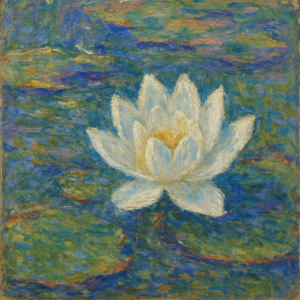This post is full of spoilers for White Lotus Season 3. You have been warned.
So Season 3 of the hit Max show White Lotus aired its finale this week, and everybody’s talking about how Shakespearean it was. I … didn’t see it. I mean, I saw the show, we were riveted to the show. But at no point did I think, “Oh look, I think that’s a Shakespeare reference.” And I mean come on, we *look* for stuff like that.

Just for something to work off of I’m going to use this article from USA Today which claimed that the finale featured “several plot lines mirroring Shakespearean tragedies,” and how “fingerprints of English playwright William Shakespeare are all over” it. You decide.
Not All Poison Is Romeo and Juliet
A family having a “run-in with poison” is not something that “could be seen as a callback to Romeo and Juliet.” Literally nothing lines up. Father can’t stand the idea of his family’s unhappiness when they learn he’s lost everything, so he tries (and fails) to poison them in a murder suicide situation. It’s like Romeo finding an alive Juliet and poisoning her because he can’t think of a way out of their situation. Not how the story goes. Father character also changes his mind and nobody dies, definitely not how Shakespeare’s version goes.
Nothing From Nothing Equals King Lear?
The show ends with the soundtrack song “Nothing from nothing leaves nothing,” which, of course, must be a deliberate King Lear reference, right? Does it matter that it’s set to a woman who has just come into possession of five million dollars seems to be sailing off to her happily ever after? Sure, she abandoned love (and any sense of moral code she may have had). But how, other than the words, does that say King Lear? Does literally anyone walk away from that play with even the illusion of a brighter future?
No One’s Father Died Before Hamlet
Lastly, we can talk about the one that seems to have the most claim to a Shakespeare connection. Rick is looking for revenge for his father’s murder. Foul and most unnatural murder? We never find out. There’s no brother/uncle. Rick knows who killed his father because his mother told him. Oh, and he’s indecisive about what his revenge will be. So … Hamlet?
While Hamlet carries out his revenge plot to fruition, he dies in a duel just like Rick, with both of them throwing away the love they had to avenge their father.
Uh, wow, hold on. Rick dies when he’s shot in the back, trying to flee the scene and save his girlfriend, who may or may not still be alive, I’m not sure we know for sure. How does either of them throw away the love they had? It’s not like Rick pulls Chelsea in front of him as a shield. Once he knows she’s done, in fact, he immediately stops shooting and tries to get her to safety. Hamlet, on the other hand … Ophelia’s dead and gone when he finally gets his chance for revenge. It’s actually his mother’s death that spurs him into action.
Rick and Ophelia end up in the water, which is supposed to mirror the famous Millais portrait of Ophelia. Visually, sure. Except it’s Hamlet/Rick who gets the visual shot, not Ophelia. And neither of them drowns, both of them had been shot. Rick’s still floating, so he’s hardly the case that the poor wretch was pulled to his muddy death by his heavy soaked garments.
Maybe It’s Me
Like I said, I normally watch tv with my “Shakespeare radar” turned up pretty high. When I saw the new Snow White movie I spotted some As You Like It parallels. But I understand what I’m looking at — just because *I* see it, doesn’t mean the creators intended it that way. If you reach far enough it’s easy to turn anything into Shakespeare.

I haven’t seen the show, but I still agree. I suppose such claims are intended to give a show some sort of cultural clout: “See, it’s Shakespeare! It has to be deep and good!”
More often than not, this is why an unlikely couple getting together is so often described as “a Romeo and Juliet story”—even if there’s nothing deliberately or specifically connected to Shakespeare’s play.
At least they went with “Poison! Romeo and Juliet!” rather than “Unlikely couple! Romeo and Juliet!”
—kj (Bardfilm)